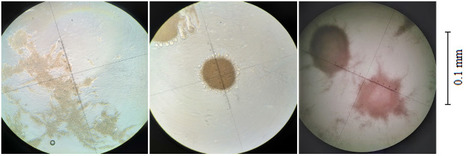
The use of Mannosylerythritol lipids (MELs), a group of biosurfactants with excellent biochemical properties, in bioremediation in marine and terrestrial environments has been envisioned. However, knowledge regarding their ecotoxicity is limited, and the current production costs are too high to make them competitive in the surfactant market. In an effort to facilitate the use of MELs for marine bioremediation purposes, the team from 2BRG/iBB studied MELs production using seawater in medium formulation as reported on “Towards Mannosylerythritol Lipids (MELs) for Bioremediation: Effects of NaCl on M. antarcticus Physiology and Biosurfactant and Lipid Production; Ecotoxicity of MELs”, published in Journal of Marine Science and Engineering. The cells were exposed to different levels of NaCl during fermentation and the effects of increased salinity on the cells and their performance were monitored. In addition, the cells were briefly exposed to osmotic shock by introducing pure NaCl into the broth to measure their physiological responses. Although the overall effect of NaCl in the medium was negative, cells produced more lipases in these stress conditions. Furthermore, the changes triggered by osmotic shock caused changes in the cell surface and affected their hydrophobicity, reducing the levels of MELs adsorbed to the cells, which in turn led to an increase in the formation of MEL-rich beads. Marine-level salinity (3.5%) was found to be sufficient to enable the production of MELs under non-sterile conditions and to inhibit the introduction of bacterial contaminants. Finally, the toxicity levels of MELs in a model marine organism and plant model were lower than those of other biosurfactants and a commercial chemical dispersant used for bioremediation.
This publication has as first-author the (now former) PhD student Petar Kekovic of the MIT-Portugal Program in Bioengineering - and as a corresponding author Frederico Ferreira and Nuno Faria. Additionally, the co-authors and a team from Sintef – Roman Netzer, Umer Farooq and Ariadna Szczybelski submitted a patent application for formulation of a novel MEL based oils spill response agent, reference number 117583.



 Your new post is loading...
Your new post is loading...






Full paper available here.